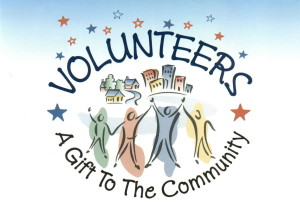Volunteering is a gift, one that serves not just the receiver of the free labor, or extra time, but it is a gift for those who volunteer. Skeptical to the truth of this statement? Here are seven reasons why helping others helps everyone involved.
Millions of people volunteer every year and do so habitually. Many people would ask, why give away time for free when you can be making money or some other value added kick back from your efforts. It simply makes the people who do the volunteering feel great about themselves when they see the good that they did. Knowledge of doing good is a strong feeling when it is directly making someone else’s day better. This is what these volunteers take away from them at the end of the day, it may not be money but it is well worth something.
Happiness:
The study of brain function has shown that when we help others our brains light up in the areas that are associated with happiness. It releases dopamine and serotonin. It provides with greater purpose that is transformed into happiness and tranquility.
Stress Reduction:
Along with the happiness hormones, we release a hormone that insulates the stress factor, cortisol. This is called oxytocin and it is coupled with dopamine to promote trust and peacefulness.
Pain Relief:
Volunteering has been proven to reduce pain indices from those with chronic pain problem. The activity takes the mind off of pain and provides activity which can often help the circulation of blood which can be linked to pain reduction.
Lengthen Lifetime:
The reduction of stress and activity can contribute to the 40 studies that confirm history of volunteering have shown a 22% decrease in mortality rate. How much is considered enough to lengthen your life? About 25 hours a year will do the trick.
Benefits to Your Professional Career:
Citing the Halo Effect by John Raynolds, volunteering can affect your work life by way of osmosis. Becoming involved in something that does not directly reward you puts in place a work ethic that is magnified when you are in a reward oriented system. This yields a better performance from you, plus employers like to see volunteer history on a resume.
To read the original article, click here.